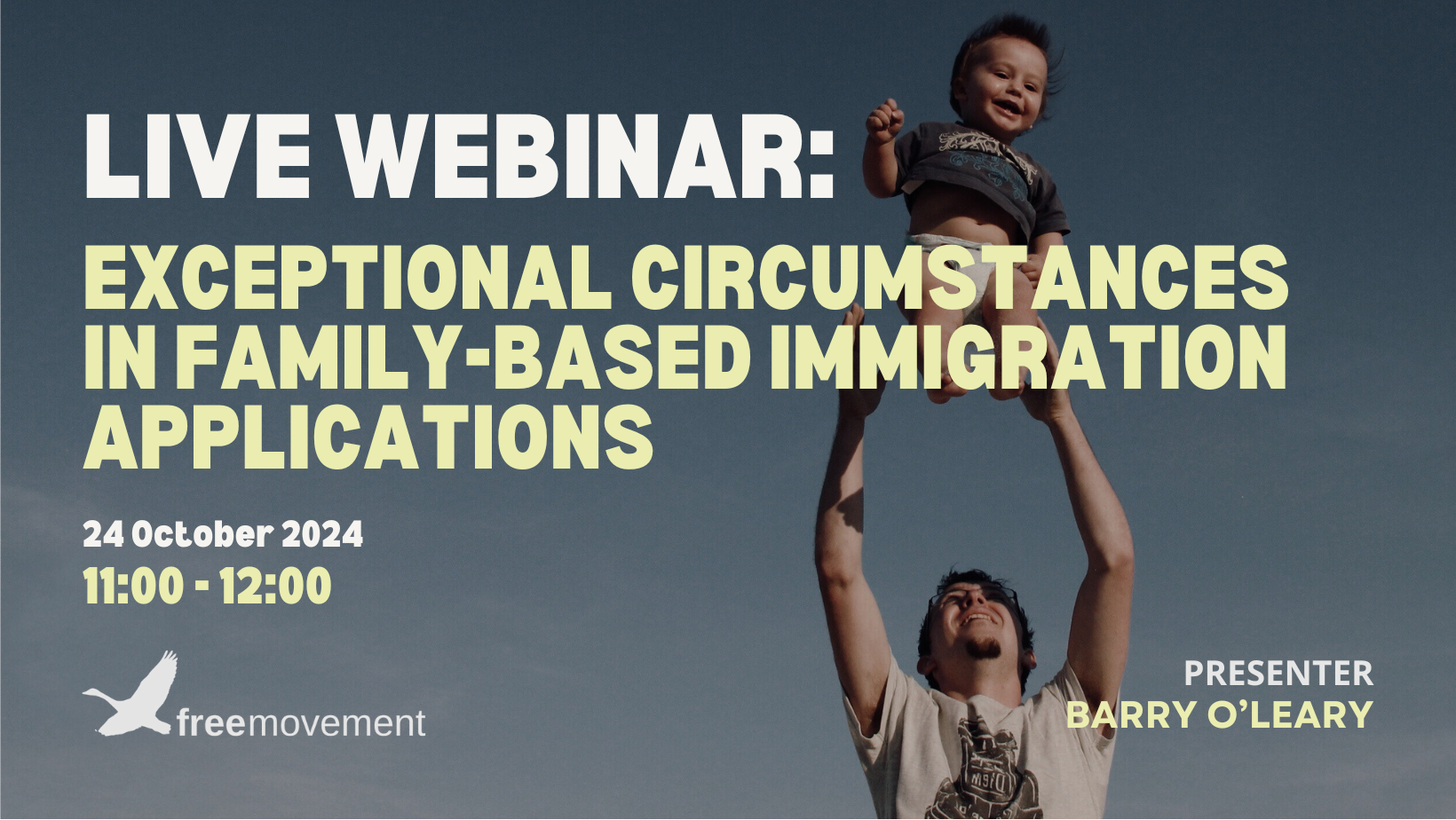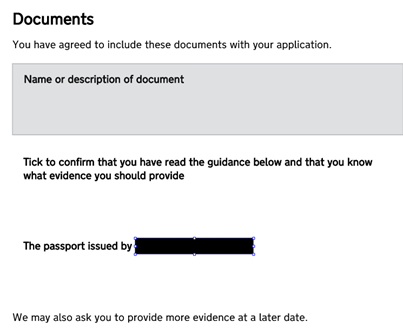By David Zuther – Authorized Affiliate
In This Article
1. Introduction to Article 8 of the European Convention on Human Rights (ECHR)
2. Background of the Al Hassan and Ors Case
3. The Appeal to the Upper Tribunal
4. Remaking the Decision: Proportionality and Refugee Family Reunion
5. Conclusion and Future Impact
6. Contact Our Immigration Barristers
7. Frequently Asked Questions
8. Glossary
1. Introduction to Article 8 of the European Conference on Human Rights (ECHR)
In its lately reported choice in Al Hassan & Ors (Article 8; entry clearance; KF (Syria)) [2024] UKUT 234 (IAC), the Higher Tribunal successfully overturned a earlier Higher Tribunal choice which held that in entry clearance circumstances participating the appropriate to respect for household life underneath Article 8 of the European Conference on Human Rights (ECHR), the rights of abroad relations making use of to hitch a relative within the UK had no function to play within the proportionality evaluation.
2. Background of the Al Hassan and Ors Case
In Al Hassan, 11 relations of a Syrian nationwide granted refugee standing within the UK (the ‘Sponsor’) had made functions for entry clearance to the UK. The household had lived collectively in Syria earlier than the outbreak of the civil conflict there. The Sponsor had come to the UK in 2014 whereas the 11 candidates fled to Jordan at varied cut-off dates.
The Secretary of State refused their functions, discovering that they didn’t meet the necessities of the Immigration Guidelines, and that refusal wouldn’t be a breach of their, or the Sponsor’s, Article 8 rights. The candidates appealed. In a choice dated 11 August 2021, First-tier Tribunal Decide Komorowski dismissed their appeals.
Although the choose was not glad that every one eleven candidates could possibly be mentioned to get pleasure from household life with the Sponsor in order that Article 8 was engaged, he went on to think about the proportionality of the Secretary of State’s choice. He recognized three elements pertinent to this evaluation:
- The profit to the sponsor’s and her husband’s psychological well being have been the candidates admitted;
- The chance of refoulement to Syria and the discrimination they might face there; and
- The separation of the household brought on by the Syrian civil conflict
The choose then went on to make quite a lot of findings, together with that the plight of the candidates in Jordan (together with the chance of forcible return to Syria) had solely a restricted function to play, because it didn’t immediately have an effect on the Sponsor’s proper to household life. In help of this conclusion, the choose relied on the Higher Tribunal choice in KF and others (entry clearance, kinfolk of refugees) Syria [2019] UKUT 413. That case, too, involved the refusal of entry clearance functions made by the dad and mom and youthful siblings of a younger man from Syria who had been recognised as a refugee within the UK. The Higher Tribunal in KF set out quite a lot of ‘important starting points’, together with the next (at [14]):
First, it’s the sponsor’s rights underneath Article 8 that are engaged. It’s he, and solely he, who’s within the UK. By Article 1 of the ECHR the UK undertook ‘to secure to everyone within [its] jurisdiction the rights and freedoms defined in section 1 of this Convention’. These rights and freedoms embody, in fact, Article 8. There are specific exceptions the place the Conference has an extra-territorial attain, however none of them is related within the current context. As Ms Meredith [Counsel for the Appellants] submitted, there are circumstances the place Article 8 has been held to require the admission of somebody who’s outdoors the UK, however that’s as a result of their exclusion could be an impermissible interference with the personal or household lifetime of a member of the family who’s within the UK -see as an example Secretary of State for the Dwelling Division v Tahir Abbas [2017] EWCA Civ 1393. We don’t due to this fact agree with Ms Meredith that the Appellants themselves have Article 8 rights for current functions since they’re all in Jordan.” (emphasis added)
3. The Attraction to the Higher Tribunal
The candidates in Al Hassan sought, and obtained, permission to attraction Decide Komorowski’s dedication, together with on the bottom that the strategy set out in KF was improper insofar because it instructed that solely the Sponsor’s rights underneath Article 8 have been related in a refusal of entry clearance to abroad relations. Such a discovering couldn’t be squared with the Court docket of Attraction’s choice in Abbas, on which the Higher Tribunal had based mostly its strategy in KF.
The Higher Tribunal agreed. It set out among the key paragraphs within the Court docket of Attraction’s judgment in Abbas ([16]-[17] and [19]). At [16], the Court docket famous that there was:
“no dispute that the Strasbourg jurisprudence supports the proposition that a person outside the territory of an ECHR state may rely upon the family life aspect of article 8 (albeit in very limited circumstances) to secure entry into an ECHR state.”
Importantly, the Court docket of Attraction was clear at [19] that household life was “unitary” in nature, in order that:
“the interference with the family life of one is an interference with the rights of all those within the ambit of the family whose rights are engaged.”
The Court docket cited the European Court docket of Human Rights’ choice in Khan v United Kingdom [2014] ECHR 293. The unitary character of household life had been recognised by the Home of Lords in Beoku-Betts v Secretary of State for the Dwelling Division [2009] AC 115.
The Higher Tribunal famous that whereas “technically obiter” (Abbas involved the query of personal life in entry clearance functions), these dicta have been “an accurate statement of the law endorsed by the Lord Chief Justice and the Senior President of Tribunals.”
They have been additionally “difficult to reconcile” with what the Higher Tribunal had mentioned in KF. That call was improper in regulation insofar because it instructed that the main focus was to be solely on the Sponsor’s rights, and to comply with that strategy risked
“a failure properly to focus on the family unit as a whole and the rights of all of those concerned. It is also to be borne in mind that it is the appellant’s rights which are in issue in these appeals, not the sponsors, given the terms of the ground of appeal, something the panel in KF (Syria) appears to have overlooked”
The Higher Tribunal discovered that the Decide had materially erred in regulation in characterising the chance as being one to the appellant’s personal lives, and counting on KF to seek out that the abroad relations’ pursuits carried little weight. He ought to have assessed the chance to the household lifetime of the appellants and the Sponsor as a household unit.
Curiously, that is not the only aspect of Abbas that was subsequently misunderstood, with doubtlessly wide-reaching penalties for appellants.
4. Remaking the Resolution: Proportionality and Refugee Household Reunion
The Higher Tribunal went on to remake the choice. It referred to the ECtHR’s choice in MA v Denmark [2021] ECHR 628 the place, at [130] to [135], the Grand Chamber reiterated quite a lot of well-established rules on household reunification. These embody that the Conference doesn’t furnish overseas nationals with a proper to enter or to reside in a specific nation, and nor does Article 8 typically require Contracting States to respect a married couple’s alternative as to the place they want to reside, or to grant household reunification. The Grand Chamber added that:
“the extent of a State’s obligations to admit to its territory relatives of persons residing there will vary according to the particular circumstances of the persons involved and the general interest and is subject to a fair balance that has to be struck between the competing interests involved. Factors to be taken into account in this context are the extent to which family life would effectively be ruptured, the extent of the ties in the Contracting State, whether there are insurmountable obstacles in the way of the family living in the country of origin of the alien concerned and whether there are factors of immigration control.”
The Grand Chamber then set out, extra particularly, quite a lot of elements which have an effect on whether or not an obligation to grant household reunification could be discovered, together with:
- The Sponsor’s standing within the host nation (whether or not they obtained settled standing) and the power of their ties to it;
- When household life was created earlier than the Sponsor achieved settled standing;
- Whether or not any youngsters have been concerned and if that’s the case, what was of their finest pursuits;
- Whether or not the particular person making use of to enter the host state had ever lived there;
- The Sponsor’s capability to keep up the particular person making use of to hitch with their revenue.
The UT additionally recorded that the Grand Chamber had noticed, at paragraph 145 of its judgment, that the place the “situation of general violence in a country” was such that any returnee would face an actual threat of ill-treatment opposite to Article 3 ECHR, the latitude afforded to States in balancing household reunification and immigration management within the Article 8 evaluation could also be decreased.
The UT famous that the Dwelling Workplace’s personal steering on refugee household reunion directed decision-makers to think about whether or not there have been distinctive circumstances which might render refusal of the appliance a breach of Article 8 ECHR, as a result of it would end in unjustifiably harsh penalties for candidates or their relations, in circumstances through which candidates didn’t meet the eligibility standards within the Guidelines. It thus imported the check present in paragraph GEN 3.2 of Appendix FM. Because the introduction of Appendix Household Reunion (Safety) in April 2023, the distinctive circumstances check is explicitly offered for in paragraph FRP 7.1. of that Appendix.
The Higher Tribunal reminded itself of the rules set out by the Supreme Court docket in Agyarko [2017] UKSC 11 and the statutory provisions in part 117B of the Nationality, Immigration and Asylum Act 2002.
Drawing all of the elements of the current case collectively, the Higher Tribunal determined that the refusal of entry clearance was disproportionate and allowed the attraction.
5. Conclusion and Future Influence
In no less than one subsequent Higher Tribunal decision, Al-Hassan led to the setting apart and remaking of a First-tier Tribunal choice through which the choose, counting on KF, had centered solely on the sponsor’s rights. Once more, the remade choice was within the Appellant’s favour. Each selections illustrate simply how damaging the misguided deal with the sponsor’s place alone was for the candidates’ probabilities.
For example, within the subsequent unreported choice – an software for entry clearance by the aged dad and mom of a Syrian nationwide with refugee standing within the UK – the First-tier Tribunal choose, having referred to KF, had directed himself that the attraction was solely involved with
“the sponsor’s understandable fears and anxiety and concerns about her parents and the consequences upon the UK sponsor of continued refusal of entry clearance which lie at the heart of the appeal.”
In contrast, when the Higher Tribunal remade the choice, its proportionality evaluation was knowledgeable by a nuanced consideration of all elements related to the sponsor and the Appellant. In respect of the latter, these included her expertise of conflict and the lack of her husband in the course of the proceedings, the truth that, though her son continued to stay in Damascus, he was unable to supply enough help or lodging to the Appellant, and the Appellant’s seemingly private care wants as she grew older which the sponsor, as her daughter, could be best-placed to satisfy.
Clearly, KF, the place it was adopted, led to an unduly slender deal with the sponsor’s place solely within the Article 8 proportionality evaluation. The choice in Al Hassan is thus more likely to improve the prospects of success for candidates for refugee household reunion who can not meet the necessities of the principles. On the identical time, because the Higher Tribunal additionally makes clear in its choice, these are fact-specific circumstances, and the existence of household life, notably the place the candidates are grownup kinfolk or members of a sponsor’s prolonged household, will rely upon the circumstances.
For skilled recommendation and help in relation to creating a UK immigration software, contact our immigration barristers in London on 0203 617 9173 or through the enquiry kind under.







